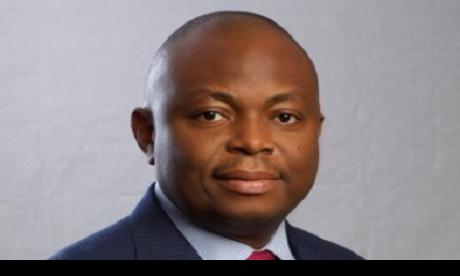brand
H1 2020: Fidelity Bank Posts Impressive Half Year Results.

- Profits up by 22% as Gross Earnings hit
N105.8bn.
Despite the economic challenges occasioned by the COVID-19 pandemic, Fidelity Bank has sustained the financial performance trajectory of recent years, with another set of impressive financial results. Details of the Audited Half Year results ending June 30, 2020 for the top Nigerian lender, released on the Nigerian Stock Exchange (NSE) on Thursday September 3, 2020, show strong growth in profits and other indices.
The bank recorded a surge in Profit Before Tax of N12.0bn from N9.8bn in 2019, which translated to a 22% growth. Net profits for Fidelity Bank grew by 33% from N8.5bn to N11.3bn in the reporting period. In other indices Total Assets rose by 13.7% from N2.1trillion in 2019 to N2.4trillion this year whilst Total Deposits rose by 14.8% from N1.2trillion to N1.4trillion during the same period.
Commenting on the results, Fidelity Bank CEO, Nnamdi Okonkwo said the performance for the period, reflects the resilience of the bank’s business model. “Due to the global and domestic headwinds witnessed in H1 2020, we proactively increased our cost of risk as the impact of the pandemic slowed down economic activities whilst adapting our business model to the new risks and opportunities of the new normal” he stated.
According to him, Fidelity Bank, re-stated its H1 2019 figures from N15.1bn to N9.8bn to reflect the impact of IFRIC 21- Levies, which was adopted for the first time on the H1 2020 financials. “The key impact of IFRIC 21 was that our 2020FY AMCON Cost was recognized 100% in our H1 2020 Accounts rather than been amortized over 12 months as was done previously on our financials” said the Fidelity CEO”. He further revealed that, without implementing IFRIC 21, profit for the period would have been N17.9bn compared to the N15.1bn reported in H1 2019.
Fidelity Bank has been implementing a digital-led retail strategy and digital banking gained further traction during the period with 87.3% of the bank’s customers now transacting on digital platforms. The figures are up from 82.0% in 2019FY while 51.2% of the bank’s customers are now enrolled on the bank’s mobile/internet banking products.
“Though digital banking income dropped by 29.1% due to the downward fee revisions for electronic transactions in line with the new bankers’ tariff, we have continued to receive positive reviews on our digital channels. IVY, the bank’s chat box is rated as the clear leader, among virtual assistants in the industry, just as our flagship instant banking product (*770#) was also rated in the top tier category in the recently released 2020 KPMG Digital Channels Scorecard” he explained.
Retail Banking in Fidelity Bank has continued to also deliver impressive results. Savings Deposits in H1 2020 increased by 32.2% to N363.9bn with the bank on course to achieving the 7th consecutive year of double-digit growth in savings. Savings Deposits accounted for 49.1% of the total growth in customer deposits and now represents 25.9% of total deposits compared to 22.5% in 2019FY.
In reflection of the bank’s early conservative assessment of the sectors that were affected by the COVID-19 pandemic, the bank’s Non-Performing Loans (NPL) ratio increased to 4.8% from 3.3% in 2019FY. Regulatory Ratios however remained above the required thresholds with Capital Adequacy Ratio increasing to 18.8% from 18.3% due to the capitalization of H1 2020 Audited Profits while Liquidity Ratio stood at 32.1%.
Buoyed by the H1 performance, the bank is optimistic about the remaining part of the year. “We believe the new phase of normalcy will unveil some growth opportunities. We will continue to monitor and pro-actively manage any evolving risks as the Nigerian economy gradually reopens and economic activities pick-up in key sectors” Okonkwo stated.
|
||||||||||||||||||||||||||||||||
|
|
||||||||||||||||||||||||||||||||
brand
Fidelity Bank Named “Nigeria’s Best Private Bank” at Euromoney Awards

 Tier one bank, Fidelity Bank PLC, has been named “Nigeria’s Best Private Bank” at the prestigious Euromoney Awards 2025. The recognition was formally unveiled at the awards ceremony held recently at The Savoy in London.
Tier one bank, Fidelity Bank PLC, has been named “Nigeria’s Best Private Bank” at the prestigious Euromoney Awards 2025. The recognition was formally unveiled at the awards ceremony held recently at The Savoy in London.
The Euromoney Awards for Excellence are prestigious annual honors and a benchmark for excellence in the global banking and finance industry. Established by Euromoney magazine, the awards highlight outstanding performance, innovation, leadership, and service excellence across various financial sectors and regions.
Commenting on the award, Managing Director and Chief Executive Officer of Fidelity Bank PLC, Dr. Nneka Onyeali-Ikpe said, “We are truly honored to be recognized by Euromoney as Nigeria’s Best Private Bank. This award is a testament to the hard work and dedication of our staff as well as our strong commitment to delivering premium wealth management solutions, personalized financial advisory, and superior client service to high-net-worth individuals in Nigeria and beyond.”
The Euromoney Awards are among the most highly respected in the global financial industry. Winning such an award for its private banking business further builds on Fidelity Bank’s growing reputation as one of Nigeria’s most trusted and customer-centric financial institutions.
According to a statement on Euromoney’s website, “The bank’s commitment to providing specialised credit solutions also sets it apart. Clients benefit from tailored lending options, including asset-backed lending, real estate financing, and customised credit facilities. These solutions are structured to support complex financial needs while ensuring flexibility and ease.”
Fidelity Bank Plc is a full-fledged commercial bank with over 9.1 million customers who are serviced across its 251 business offices and various digital banking channels in Nigeria and the United Kingdom.
The Bank is the recipient of multiple local and international Awards, including the 2024 Excellence in Digital Transformation & MSME Banking Award by BusinessDay Banks and Financial Institutions (BAFI) Awards; the 2024 Most Innovative Mobile Banking Application award for its Fidelity Mobile App by Global Business Outlook, and the 2024 Most Innovative Investment Banking Service Provider award by Global Brands Magazine. Additionally, the Bank was recognized as the Best Bank for SMEs in Nigeria by the Euromoney Awards for Excellence and as the Export Financing Bank of the Year by the BusinessDay Banks and Financial Institutions (BAFI) Awards.
brand
Access Holdings Records 88% Growth in Gross Earnings to N4.878 Trillion

 Access Holdings PLC (“the Group”) (Bloomberg: ACCESSCO), a leading African financial services group, today, announced its audited financial results for the full year ended December 31, 2024. The Group delivered 88% year-on-year growth in gross earnings, rising from N2.594 trillion in 2023 to N4.878 trillion in 2024. The strong performance was driven by diversified income streams, with interest income growing by 110% to N3.480 trillion and non-interest income increasing by 47.8% to N1.397 trillion, supported by robust retail banking activities, digital expansion, and a dynamic trading strategy.Profit before tax (PBT) increased by 19% to N867.0 billion, while profit after tax (PAT) rose to N642.2 billion, despite inflationary and macroeconomic challenges. Total assets grew by 55.5% to N41.498 trillion, and customer deposits rose by 47% to N22.525 trillion. Shareholders’ funds also increased by 72%, reaching N3.760 trillion.In 2024, the Group made significant social and environmental impact across the continent, touching millions of lives and earning multiple industry accolades. Through various corporate social investment initiatives in education, entrepreneurship, health, and the environment, the Group reached over 21 million individuals across Africa. Its employee wellness programmes also covered 28,000 staff across operating entities. Access Bank, the flagship subsidiary, through its W-Initiative, disbursed loans to over a million women-led SMEs, advancing financial inclusion and gender empowerment.The Group’s efforts attracted prestigious recognition and awards, including three Euromoney Awards for Excellence (notably ‘Best Bank for ESG’); International Finance Award for ‘Most Innovative Bank for Community Development and Community Engagement’; and World Economic Magazine Award for ‘Most Sustainable Bank’.In terms of economic sustainability, Access Bank recorded strong strides through its Economic, Social and Governance (ESG) programmes. It facilitated $437.42 million in DFI inflows to support MSMEs across Africa, disbursed 1.6 million digital loans to low-income individuals, and booked its first N1.4 billion diaspora mortgage loan.The Group also achieved a 13.4% reduction in operational emissions, planted 57,302 trees, and enabled solar power adoption for 226 homes and businesses. Its headquarters was awarded the IFC EDGE (Excellence in Design for Greater Efficiencies) Green Building Certification for sustainable design and construction
Access Holdings PLC (“the Group”) (Bloomberg: ACCESSCO), a leading African financial services group, today, announced its audited financial results for the full year ended December 31, 2024. The Group delivered 88% year-on-year growth in gross earnings, rising from N2.594 trillion in 2023 to N4.878 trillion in 2024. The strong performance was driven by diversified income streams, with interest income growing by 110% to N3.480 trillion and non-interest income increasing by 47.8% to N1.397 trillion, supported by robust retail banking activities, digital expansion, and a dynamic trading strategy.Profit before tax (PBT) increased by 19% to N867.0 billion, while profit after tax (PAT) rose to N642.2 billion, despite inflationary and macroeconomic challenges. Total assets grew by 55.5% to N41.498 trillion, and customer deposits rose by 47% to N22.525 trillion. Shareholders’ funds also increased by 72%, reaching N3.760 trillion.In 2024, the Group made significant social and environmental impact across the continent, touching millions of lives and earning multiple industry accolades. Through various corporate social investment initiatives in education, entrepreneurship, health, and the environment, the Group reached over 21 million individuals across Africa. Its employee wellness programmes also covered 28,000 staff across operating entities. Access Bank, the flagship subsidiary, through its W-Initiative, disbursed loans to over a million women-led SMEs, advancing financial inclusion and gender empowerment.The Group’s efforts attracted prestigious recognition and awards, including three Euromoney Awards for Excellence (notably ‘Best Bank for ESG’); International Finance Award for ‘Most Innovative Bank for Community Development and Community Engagement’; and World Economic Magazine Award for ‘Most Sustainable Bank’.In terms of economic sustainability, Access Bank recorded strong strides through its Economic, Social and Governance (ESG) programmes. It facilitated $437.42 million in DFI inflows to support MSMEs across Africa, disbursed 1.6 million digital loans to low-income individuals, and booked its first N1.4 billion diaspora mortgage loan.The Group also achieved a 13.4% reduction in operational emissions, planted 57,302 trees, and enabled solar power adoption for 226 homes and businesses. Its headquarters was awarded the IFC EDGE (Excellence in Design for Greater Efficiencies) Green Building Certification for sustainable design and construction
standards.In addition, Access employees contributed 228,500 volunteer hours to various community development programmes, reinforcing the Group’s commitment to inclusive and purpose-driven impact.The Group is focused on delivering sustainable returns to shareholders, while reinvesting in innovation, infrastructure, and cross-border expansion. Its banking subsidiary launched operations in Hong Kong, received regulatory approval in Malta, and successfully integrated its operations in Zambia and Tanzania, expanding its global footprint.Access Bank posted significant gains across all performance metrics, with interest income growing by 110% and fees and commissions rising by 81%. International subsidiaries contributed 48.5% to the banking segment’s PBT, demonstrating strong execution across key markets.In 2024, Access Holdings also became the first institution to meet the Central Bank of Nigeria’s recapitalisation directive, raising 351 billion through a rights issue. The₦ proceeds are being strategically deployed to strengthen digital infrastructure, enhance liquidity, and fuel long-term growth.Looking ahead, Access Holdings remains committed to building a more inclusive, sustainable, and profitable future, delivering delivering value not just to shareholders, but to society and the environment at large.
brand
JIM OVIA ADMITTED TO THE FREEDOM OF THE CITY OF LONDON

 L-R: Chairman, Access Holdings Plc, Aigboje Aig-Imoukhuede, CFR; His Eminence John Cardinal Onaiyekan; President of Dangote Group, Alhaji Aliko Dangote, GCON; Founder and Chairman of Zenith Bank Plc, Jim Ovia, CFR; Governor of Lagos State, Mr. Babajide Sanwo-Olu; and Governor of Delta State, Rt.Hon. (Elder) Sherrif Oborevwori, during the admission of Jim Ovia to the Freedom of the City of London in the United Kingdom, on Monday.
L-R: Chairman, Access Holdings Plc, Aigboje Aig-Imoukhuede, CFR; His Eminence John Cardinal Onaiyekan; President of Dangote Group, Alhaji Aliko Dangote, GCON; Founder and Chairman of Zenith Bank Plc, Jim Ovia, CFR; Governor of Lagos State, Mr. Babajide Sanwo-Olu; and Governor of Delta State, Rt.Hon. (Elder) Sherrif Oborevwori, during the admission of Jim Ovia to the Freedom of the City of London in the United Kingdom, on Monday.
The Founder and Chairman of Zenith Bank Plc, Jim Ovia, CFR, has been admitted to the prestigious Freedom of the City of London in a distinguished ceremony which held at the Mansion House, City of London on Monday, April 7, 2025. This prestigious accolade is a testament to Mr. Ovia’s exceptional contributions to the global financial landscape, unwavering commitment to fostering economic development, and dedication to philanthropic endeavours that have positively impacted countless lives.The Freedom of the City of London, a time-honoured tradition dating back to the 13th century, is one of the oldest surviving ceremonies in the United Kingdom. Historically, it granted freemen certain rights and privileges within the city. Today, it stands as a symbolic recognition of individuals who have made outstanding contributions to London or the wider society. This honour places Mr. Ovia among a distinguished group of recipients, which includes notable figures from various fields such as Nelson Mandela, Bill Gates, Sir Winston Churchill, Desmond Tutu, Harry Kane, Morgan Freeman and Ian Wright.Commenting on his new status as a Freeman of the City of London, the distinguished honoree, Jim Ovia, CFR said “It is indeed a great honour to be admitted to the prestigious Freedom of the City of London. This is not just a recognition of my personal achievements, but also a testament to the tireless efforts of the entire Zenith team who have worked diligently to establish our institution as a leading force in global finance. I am proud to be part of a legacy that celebrates innovation, excellence and the spirit of entrepreneurship. I dedicate this to the people of Nigeria and Africa who continue to inspire me with their resilience and determination. I look forward to continuing to play a role in shaping the economic landscape of our great continent and beyond.”Joining the nation in congratulating Mr. Ovia, President Bola Tinubu, through a press statement by the Special Adviser to the President on Information and Strategy, Bayo Onanuga, commended Mr. Ovia for being a distinguished ambassador of the nation’s private sector. He described the honour as a fitting recognition of his exceptional contributions to business, innovation, and technology, as well as for his role in shaping Nigeria’s financial landscape and strengthening economic ties between Africa and the rest of the world. According to him, “This honour is a testament to your unwavering commitment to excellence, your pioneering role in the growth of the financial services sector in Nigeria, and your visionary leadership that continues to inspire generations. As an accomplished entrepreneur and advocate of innovation-driven development, your recognition in the City of London affirms the global relevance of Nigerian excellence and enterprise”.Dignitaries at the ceremony include Former President of Nigeria, Chief Olusegun Obasanjo, GCFR; Governor of Lagos State, Mr. Babajide Sanwo-olu; Governor of Delta State, Rt.Hon. (Elder) Sherrif Oborevwori; Governor of Enugu State, Dr. Peter Mbah; President of Dangote Group, Alhaji Aliko Dangote, GCON; Minister of State for Finance, Dr. Doris Uzoka-Anite; Minister of Industry, Trade and Investment, Dr. Jumoke Oduwole, MFR; Minister of State for Foreign Affairs, Bianca Odumegwu-Ojukwu; Oba of Oniru, Oba Abdulwasiu Lawal; Group Managing Director, TGI Group of Companies, Rahul Savara; Obi of Onitsha, Igwe Nnaemeka Alfred Achebe, CFR, and His Eminence John Cardinal Onaiyekan, who joined Zenith Bank Executives in celebrating this significant milestone.This well-deserved recognition rides on the back of many other prestigious awards that Mr. Ovia has received for his outstanding contributions to banking, education and philanthropy including conferment of Commander of the Federal Republic (CFR) & National Productivity Order of Merit (NPOM) Award in 2022 by the Federal Government of Nigeria. He was also named the Banker of the Year in 2007 and Titan of the year in 2024 by ThisDay Newspaper, and received the African Business Leader Award from the Africa-America Institute. He received honorary degrees from the University of Lagos as well as from the University of Nigeria, Nsukka and was recognized by Forbes Africa as one of the most influential figures in banking.
-

 news4 years ago
news4 years agoUPDATE: #ENDSARS: CCTV footage of Lekki shootings intact – Says Sanwo – Olu
-

 news1 year ago
news1 year agoEnvironmental Pollutions : OGONI COMMUNITY CRIES OUT, THREATENS TO SHUT DOWN FIRSTBANK,SHELL OIL COMPANY OPERATIONS FOR NOT PAYING COURT AWARD
-

 news3 weeks ago
news3 weeks agoBreaking : TInubu appoints Bashir Ojulari as new CEO group of NNPC and GMD mele kyari get sacked, Says Onanuga
-

 interview3 weeks ago
interview3 weeks agoNIGERIA MECHANIZED AGRO EXTENSION SERVICE PROJECT, A STRATEGIC MOVE TO ALLEVIATE POVERTY – DR. AMINU ABDULKADIR
-

 news3 weeks ago
news3 weeks agoUpdate : Fubara ordered bombing of Rivers Assembly, I am not under duress I resigned, Says ex-Rivers HoS Nwaeke
-

 news1 week ago
news1 week agoNothing new in FBI report on Tinubu, says Onanuga
-

 news3 weeks ago
news3 weeks agoTinubu commended Nandap for her leadership, extends Comptroller-General tenure till 2026, says Onanuga
-

 news2 weeks ago
news2 weeks agoUpdate : FG confirms continuation of crude, refined product sales in Naira initiative, Says Wale Edu



